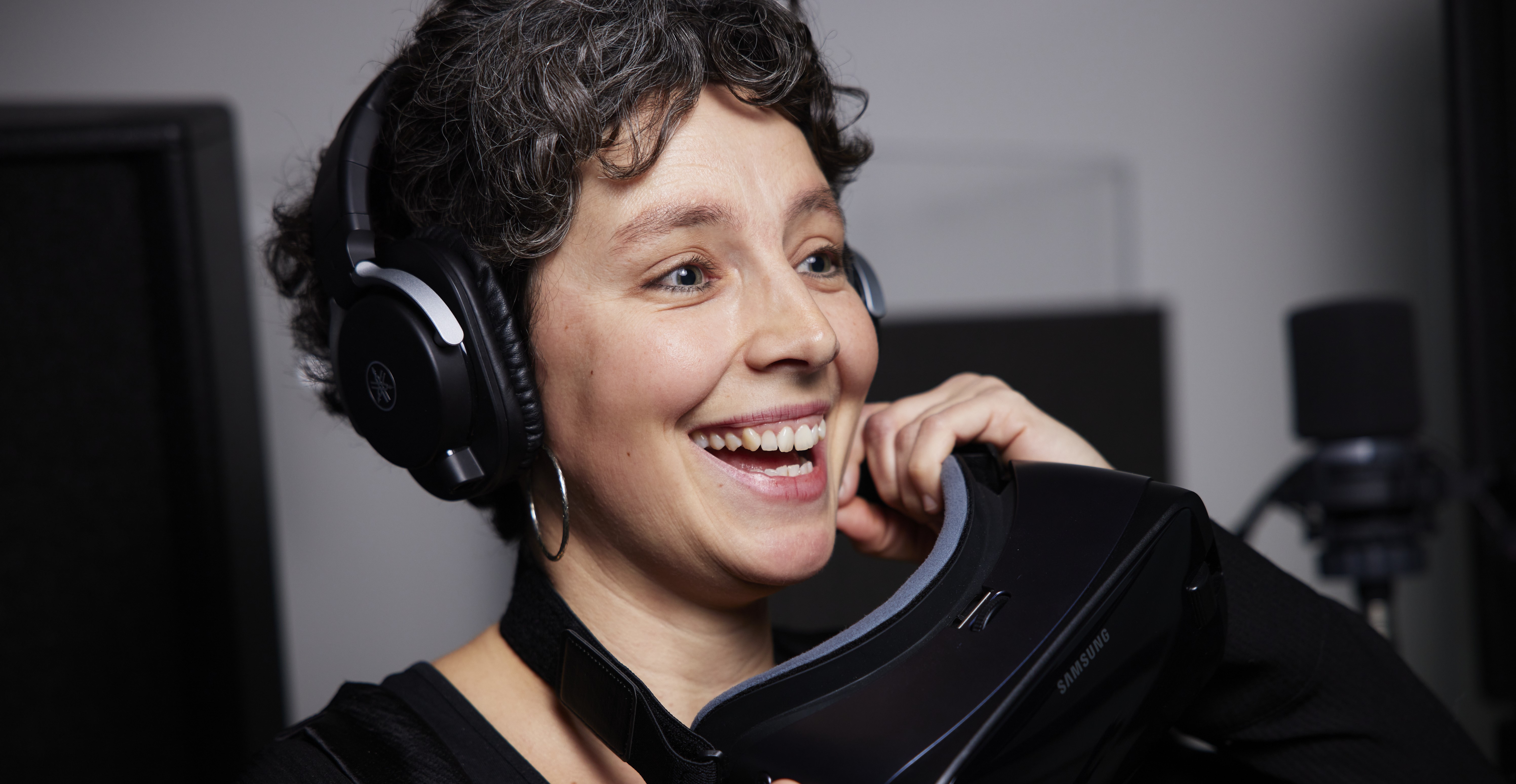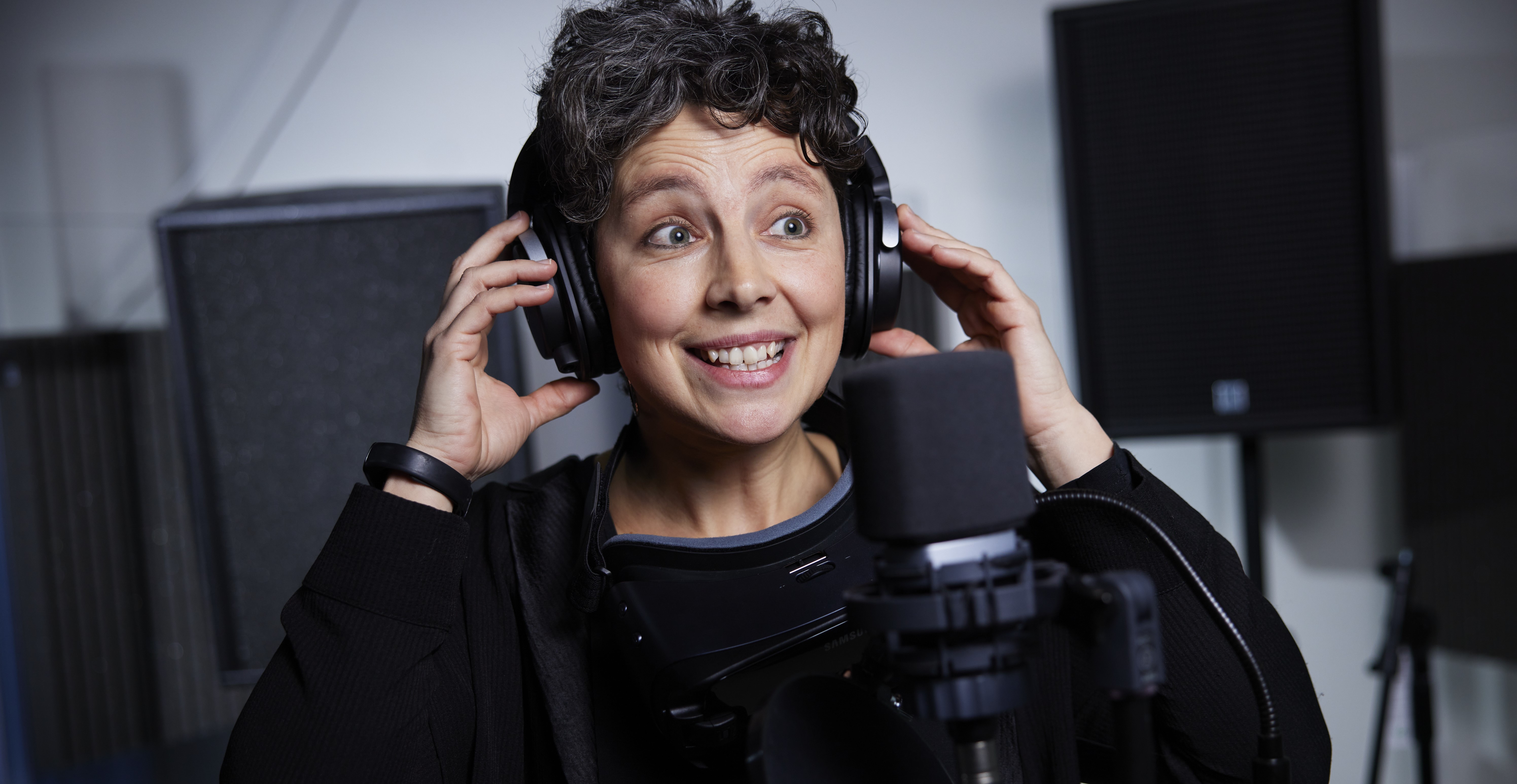
New postdoc wants to empower teen communication using virtual reality
Public speaking is like learning a new language. The earlier you start, the better a speaker you will become. Translational Postdoc Ïo Valls-Ratés is creating a virtual universe that allows teenagers to practise their communication skills
Your voice is a powerful tool. You can make a huge difference, when you are trying to convince somebody, when you are in a job interview, or when you are presenting for an audience.
If you know how to use your voice, you can become more persuasive and convey a message in an effective way.
Few adults master the skill of public speaking. Newly appointed Translational Postdoc Ïo Valls-Ratés is working to change that. The researcher emphasises that the earlier you start training your voice, the better you will be able to use it as an adult.
Her goal is to empower teenagers and enable them to communicate better using virtual reality. Her PhD thesis was about virtual reality and public speaking among school children in Barcelona.

Voice training in a playful way
She now wants to create a learning universe for teens where they will meet challenges that allow them to work with their voices in a playful way.
‘You put your glasses on, and you have this mission. Imagine that you’re walking in the forest, and you must find your partner that is hiding somewhere. To do that you will need to shout their name. You will use your voice – but how?’ Valls-Ratés asks.
When the students have done the exercise in the virtual reality universe, they get feedback on how they performed so they can try again and learn to communicate more effectively.
To see if the exercises make a difference, teenagers will first give a speech in front of a live audience, then they will perform different sessions with the virtual reality app. Finally, they will speak again in front of a live audience.
‘When preparing a presentation, rehearsing orally is essential. By rehearsing what you want to say, you can make decisions on the length and how you will start and finish so that it captures the attention of the audience,’ Ïo Valls-Ratés explains.
‘I am sure that we can offer teenagers more tools to reduce their anxiety of speaking up and encourage them to communicate in front of others to make their voices be heard and respected.’
The plan is to create the universe in an app so the teens can enter it using virtual reality goggles. Before this can happen, there is a big task ahead in gathering all the data that will support the learning universe.
Gathering data for the app
Ïo Valls-Ratés is going to visit Danish schools to gather voice samples. She will ask teens to record brief speeches so she can save the sound of their voices. The project will also include teachers to give feedback.
‘We want to gather a lot of information on voices of students aged 12 to 16, because we need plenty of data on different types of voices - female, male, younger, older voices,’ the postdoc explains.
‘The voice acoustics of 12-16 years old kids is not the same as for grown-up adults. Therefore, starting from established knowledge about persuasive voice acoustics for adults, we need to research the dos and don’ts for children and adapt the type of feedback to this target.’
The amount of data allows the project to give very specific feedback on how each boy and girl is doing when using the app and the virtual learning universe.

The Spin-outs Denmark programme is open to all junior researchers who wish to start a business based on research in the humanities or the technical, natural and social sciences.
As part of the programme, Ïo Valls-Ratés will receive one year of financial and professional assistance to develop a concrete idea and found her own company. She is the second researcher at SDU who has taken on this challenge.
The first translational postdoc is Kristian Husum Laursen, who has created a business based on his research on drones.
Working towards a product
Collecting the data and preparing the foundation of the app in just one year is truly an ambitious project, but Ïo Valls-Ratés hopes to have a mock-up of the app with a virtual universe that have already been tested in Danish schools.
She receives help from her business mentor Jakob Knutzen and from her project supervisor Associate Professor Oliver Niebuhr at the Centre for Industrial Electronics at SDU. Oliver is, according to Ingenioren.dk, the leading expert in Europe within the field of digital rhetoric.
Questions?
- Send an email to Bo Nilsson, programme coordinator at SDU and business developer in SDU RIO.
New programme for junior researchers
- Spin-outs Denmark is a one-year programme for junior researchers who dream of creating a company based on their own research (a spin-out).
- The programme is run by the eight Danish universities and is funded by the Villum Foundation.
- Spin-outs Denmark expects to appoint up to 60 translational postdocs.
- Read more and apply.